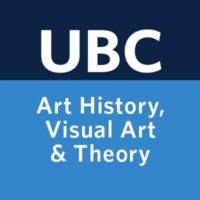2021 - Ongoing
A COLLABORATION WITH THE MORRIS AND HELEN BELKIN ART GALLERY AND THE DEPARTMENT OF ART HISTORY, VISUAL ART AND THEORY WITH FUNDING FROM THE UBC PUBLIC HUMANITIES HUB AND THE SOCIAL SCIENCES AND HUMANITIES RESEARCH COUNCIL.
Critical Image Forum: Research in Photography and Expanded Documentary
-
Solange Adum Abdala
Graduate Outreach CoordinatorSolange Adum Abdala is a Peruvian-born photographer and visual artist (b.1980) currently based in Vancouver, where she is a candidate in the MFA program at the University of British Columbia. She holds a BA in visual project direction and photography from the Escuela Superior Tecnológica Centro de la Imagen. Influenced by her Lebanese-Palestinian heritage and experiences of migration, Adum Abdala’s practice engages with temporality, space, territory and landscape. Initially focused on lens-based views, Adum Abdala now repurposes previous works to comment on colonization, incorporating drawing, video, collage, AI and vision-extension devices to invite viewers to re/de/construct their perceptions of the world. Her work has been shown in solo and group exhibitions in Peru, as well as in the US, Europe and Asia. She has been recognized by the Prix Pictet (2022), Instituto Cultural Peruano Norteamericano, CPNA Contemporary Art Award (2020, 2024), American Illustration-American Photography (2019) and NextFoto Ibero-America (2014). In addition to her artistic practice, Adum Abdala teaches photography and in 2021, co-founded Galería Pública, a virtual gallery specializing in disseminating photographic production in Peru.
Read More
-
Yasmin Amaratunga
Research Associate -
Saranaz Barforoush
Faculty ResearcherBarforoush is a journalism educator with a background in journalism and photography research. Her research interests include journalism education, representation of the “other” in news and photojournalism, foreign affairs and international reporting, journalism ethics, political communication, and the implications of new media technology in journalism and ethical reporting. Barforoush is an Assistant Professor of Teaching in journalism at UBC’s school of Journalism, Writing, and Media and an affiliated faculty with the bachelor of Media studies program.
Read More
-
Reilly Bishop-Stall
Research Associate -
Sabine Bitter
Faculty ResearcherSabine Bitter (b. 1960) is a Vancouver-based artist, curator, educator and professor at Simon Fraser University. From 2009-13, Bitter was the coordinator of the Audain Visual Artist in Residence program and the curator of the Audain Gallery, SFU, realizing projects with Marjetica Potrč, Raqs Media Collective, Elke Krasny with the Downtown Eastside Women’s Centre, Ricardo Basbaum, Claire Fontaine and Muntadas, among others. Since 1993, Bitter has collaborated with Vienna-based artist Helmut Weber on projects addressing cities, architecture and the politics of representation and space. Working mainly in photography and spatial installations, their research-oriented practice engages with specific moments and logics of global urban change in neighbourhoods, architecture and everyday life. Engaging architecture as a frame for spatial meaning, their ongoing research includes projects like “Educational Modernism” and “Housing the Social.” In 2004, Bitter, Weber and Jeff Derksen formed the research collective Urban Subjects.
Read More
-
Zach Blas
Research Associate -
Antoine Bourges
Faculty ResearcherBourges is a Vancouver-based filmmaker originating from France. He is an Assistant Professor of Film Production at the University of British Columbia in the Department of Theatre and Film. His films navigate the intersection of documentary and fiction, with an emphasis on human relations within institutional systems. His practice is based on ongoing collaborations with his subjects, both actors and non-actors with lived experience within the systems depicted. Bourges’ work has been presented at numerous festivals and film spaces including the Berlinale, TIFF, Viennale, Centre Pompidou’s Cinéma du Réel, and the Lincoln Center’s Art of the Real.
Read More
-
Catherine Clement
Research Associate -
Miqu’el Dangeli
Faculty Researcher -
Heather Diack
Research AssociateDiack is Associate Professor of Contemporary Art History and the History of Photography at the University of Miami, where she specializes in conceptual art, critical theory, conflict studies, and civic engagement. She is the author of Documents of Doubt: The Photographic Conditions of Conceptual Art (University of Minnesota Press, 2020), co-author with Erina Duganne and Terri Weissman of Global Photography: A Critical History (London: Routledge, 2020), and co-editor of photographies (Fall 2017 no. 10.3) Not Just Pictures: Reassessing Critical Models for 1980s Photography. Her writing has appeared in numerous journals including, Visual Studies, History of Photography, Public, and RACAR, as well as in several edited volumes, such as Photography Performing Humor (Leuven University Press, 2019), L’art de Douglas Huebler (Presses Universitaires de Rennes, 2018), Photography and Doubt (Routledge, 2017), and The Public Life of Photographs (MIT Press and Ryerson Image Center, 2016). In 2016 Diack was the Terra Foundation for American Art Visiting Professor at the John F. Kennedy Institute for North American Studies at the Freie Universität in Berlin.
Read More
-
Christine D’Onofrio
Faculty ResearcherChristine D’Onofrio is an artist who works in photography, video, digital media, interactive media, printmaking, sculpture, book work and installation.Her practice explores themes related to art history and the nature of artistic practice, current and historical feminisms, exploitation, virtue, humiliation, humour and desire. She is interested in the contradictions and ambiguities of liberty, especially under capitalism and her work frequently juxtaposes consumer culture and mass media with art historical references. Her recent work critically addresses feminist strategies and discourses pertaining to structures of exploitation, humiliation and power. D’Onofrio is involved with Art+Feminism in Vancouver, an international campaign to improve the coverage of women and female identifying artists on Wikipedia.
Read More
-
Sara Ellis
Research Associate -
Denise Fong
Research Associate -
Olivia Michiko Gagnon
Faculty ResearcherOlivia Michiko Gagnon is Assistant Professor in the Department of Theatre & Film at UBC. She is currently completing her first monograph––On Closeness: Archives, Aesthetics, and Forms of Relation––which theorizes closeness as a minoritarian method that moves between the aesthetic and the social. Their writing has appeared in ASAP/Journal, Text & Performance Quarterly, Canadian Theatre Review, emisférica, Syndicate, C Magazine, and Women & Performance: a journal of feminist theory. She has also written for the Vancouver Art Gallery (with Monika Kin Gagnon), the Belkin Gallery, Gallery 44, and the New Museum, and was formerly Managing Editor of HemiPress at the Hemispheric Institute of Performance and Politics in New York City. They received their PhD from the Department of Performance Studies at NYU.
Read More
-
Ayasha Guerin
Faculty ResearcherAyasha Guerin is an interdisciplinary artist, curator, and professor of Black Diaspora Studies in the Department of English Language and Literatures. Dr. Guerin is also faculty affiliate of the Centre for European Studies, the Department of Central, Eastern and Northern European Studies, and a member of the Critical Image Forum research cluster at UBC.
Dr. Guerin received her PhD in 2020 from New York University’s American Studies program. Her first book project, Making Zone-A: Nature, Race and Resilience on New York’s Most Vulnerable Shores, explores Black social life and ecology in the city’s floodplain from the 17th-19th centuries. Tracing how colonial capitalism has cultivated a hierarchy of racial and species difference on urban landfill, it considers how activism on the waterfront has been shaped by diasporic relationships and interspecies entanglements. Her second project is focused on transnational Black feminism and arts activism in Berlin, Germany.Read More
-
Andrea Kunard
Research Associate -
Jillian Lerner
Faculty ResearcherJillian Lerner specializes in the history of photography, nineteenth-century visual culture, and critical pedagogy. An alumna of UBC (BA 1998), she went on to study art history at Columbia University, completing her PhD in 2006 under the direction of Jonathan Crary and Anne Higonnet. Dr. Lerner is the author of two books: Graphic Culture: Illustration and Artistic Enterprise in Paris, 1830–1848 (McGill-Queens University Press, 2018) and Experimental Self-Portraits in Early French Photography (Routledge, 2021). Her essays on print and photography have been published in Grey Room, Oxford Art Journal, History of Photography, The Art Bulletin, and Hippolyte Bayard and the Invention of Photography (J. Paul Getty Museum, 2024). A study on the phantasmagoria, historical retrieval, and the afterlives of social violence in revolutionary Paris is forthcoming in A Companion to French Art, 1780 to the Present (eds. Natalie Adamson and Richard Taws). Alongside her current research on reparative histories of photography, Dr. Lerner is pursuing a scholarship of teaching and learning (SoTL) project that explores approaches to social justice storytelling, place-based learning, and pedagogies of relational accountability enacted in undergraduate courses in art history and media studies.
Read More
-
April Liu
Research AssociateDr. April Liu has over twenty years of experience as a curator, researcher, and documentary filmmaker specializing in Chinese diasporic heritage. She co-curated the major permanent exhibits at the UBC Chung Lind Gallery (2024) with Faith Moosang, bringing new perspectives to Chinese Canadian history and the Klondike Gold Rush. April has served as the Curator of Public Programs and Engagement at the UBC Museum of Anthropology and as an expert consultant for UNESCO’s Intangible Cultural Heritage section (Asia). Her media projects have been featured on CBC Gem, CBC Arts, CBC Radio Canada, Guangzhou Radio and TV, Chinese National Radio (CNR), and the Pasadena International Film Festival. She has published extensively on Asian arts and culture, including Divine Threads (2019), a major book-length study of Cantonese Opera.
Read More
-
Kelly McCormick
Co-lead and Faculty ResearcherMcCormick is a historian of the visual and material culture of modern Japan. She writes about the politics of photography culture and optical technologies in Japan from the 1930s to the 1970s. Her recent research focuses on the first women to become professional photographers in Japan in the 1940s and 50s, marketing the camera as a symbol of Japanese modern design, and female student uses of the camera to document environmental degradation. McCormick is an Assistant Professor in the Department of History at UBC.
Read More
-
Karice Mitchell
Faculty ResearcherKarice Mitchell (b. 1996, Toronto, Canada) is a photo-based installation artist whose practice uses found imagery and digital manipulation to engage with issues relating to the representation of the Black female body in pornography and popular culture. Her work seeks to re-contextualize pre-existing images to reimagine the possibilities for Black womanhood and sexuality detached from the white gaze and patriarchy. She received her BFA at York University in 2019 and her MFA at the University of Waterloo in June 2021.
Read More
-
Faith Moosang
Research AssociateFaith Moosang is a multimedia artist, curator, writer, and researcher whose work explores the integration of multimedia imagery, digital interactivity, and archives. She co-curated the major permanent exhibits at the UBC Chung Lind Gallery (2024) alongside April Liu, bringing new perspectives to Chinese Canadian history and the Klondike Gold Rush. Faith has created interactive works for the Museum of Anthropology, Polygon Gallery, City of Richmond Public Art, and Cinevolution Media Arts Society, among others. Her curated exhibits, many featuring archival photographs and media, have been widely showcased across Canada and the United States. She received the Alcuin Society Award (1999) and the Canadian Museums Association Award for Best Canadian Research (2001) for her groundbreaking publication and travelling exhibit on photographer C.D. Hoy.
Read More
-
John O'Brian
Faculty ResearcherO’Brian is an art historian, writer, curator, and Professor Emeritus. He is the author or editor of twenty books and many articles, and is best known for his books on modern art, including Clement Greenberg: The Collected Essays and Criticism, one of the New York Times “Notable Books of the Year” in 1986, and for his exhibitions on nuclear photography such as Camera Atomica, organized for the Art Gallery of Ontario in 2015. Camera Atomica was the first comprehensive exhibition on postwar nuclear photography. O’Brian taught in Art History at The University of British Columbia from 1987-2017, where he held the Brenda & David McLean Chair in Canadian Studies (2008-11) and was an Associate of the Peter Wall Institute for Advanced Studies. He is a recipient of the Thakore Award in Human Rights and Peace Studies from Simon Fraser University.
Read More
-
Jay Pahre
Research and Outreach CoordinatorJay Pahre is a queer and trans settler artist, writer, and cultural worker currently based on the unceded territories of the xʷməθkʷəy̓əm, Sḵwx̱wú7mesh, and səlilwətaɬ peoples. His work engages trans and queer ecologies, interspecies collaboration, and place in the context of settler colonialism. He has attended residencies at the Western Front, Banff Centre and Isle Royale National Park. His work has been exhibited across the US and Canada at traditional galleries and community spaces, and his writing has been published in academic journals and comic anthologies.
Read More
-
Carol Payne
Research Associate -
Gonzalo Reyes Rodriguez
Faculty ResearcherGonzalo Reyes Rodriguez (b. 1987 Mexico City) is an artist working in photography and film/video to examine the temporal ambiguity of our experience of images—still but in motion, historical yet continuously made present. He employs materials such as found photographs, magazine interviews and film/tv scripts to overlay the recent past against the present. Recent group exhibitions include the National Gallery of Canada, Ottawa; the Centre for Contemporary Art in Glasgow, and Luhring Augustine Gallery in New York City. His work has been featured in Artforum, T Magazine, Musée Magazine and Hyperallergic. Rodriguez received his MFA from the University of Pennsylvania and was a participant at the Skowhegan School of Painting and Sculpture. He lives and works in so-called “Vancouver”, where he is an Assistant Professor at Emily Carr University.
Read More
-
Shelly Rosenblum
Faculty ResearcherShelly Rosenblum is Curator of Academic Programs at the Belkin. Inaugurating this position at the Belkin, Rosenblum’s role is to develop programs that increase myriad forms of civic and academic engagement at UBC, the wider Vancouver community and beyond. Rosenblum received her PhD at Brown University and has taught at Brown, Wesleyan and UBC. Her awards include fellowships from the Center for the Humanities, Wesleyan University and a multi-year Presidential Postdoctoral Research Fellowship, Department of English, UBC. She was selected for the Summer Leadership Institute of the Association of Academic Museums and Galleries at the Kellogg School of Management, Northwestern University (2014). Her research interests include issues in contemporary art and museum theory, discourses of the Black Atlantic, critical theory, narrative and performativity. Her teaching covers the 17th to the 21st centuries. She remains active in professional associations related to academic museums and cultural studies, attending international conferences and workshops, and recently completing two terms (six years) on the Board of Directors at the Western Front, Vancouver, including serving as Board President. At UBC, Rosenblum is an Affiliate of the Peter Wall Institute for Advanced Studies.
Read More
-
Nadia Shihab
Faculty ResearcherNadia Shihab is a filmmaker, artist and Fulbright scholar working in the realm of experimental documentary, and she is an Assistant Professor of film at Simon Fraser University’s School for Contemporary Arts. Her projects emerge through processes that are relational, and have taken the form of films, sound composition/performance, visual art and writing. She is the director of SISTER MOTHER LOVER CHILD, ECHOLOCATION, AMAL’S GARDEN, and the feature-length film JADDOLAND, which was awarded five festival jury awards, including the Independent Spirit “Truer than Fiction” Award, and went on to broadcast for three seasons on US public television. Her work has shown in exhibitions and festivals internationally, including at Cinema du Réel at the Centre Pompidou, Cairo International Film Festival, Images Festival, Black Star Film Festival, Walker Art Center, Berkeley Art Museum, DOXA, Kasseler Dokfest, and Alchemy Film & Video Arts Festival. She has held residencies at the MacDowell Colony and Djerassi Residency and her work has received support from the Sundance Institute, Arab Fund for Arts & Culture, Center for Asian American Media, Firelight Media, and Tribeca Film Institute.
Read More
-
Sameena Siddiqui
Graduate ResearcherSameena Siddiqui is an Associate Curator of Adult Programs at Surrey Art Gallery. She is also a Ph.D. candidate and SRSF doctoral fellow at the Department of Art History, Visual Art and Theory, University of British Columbia, Canada. Siddiqui has presented her research at several international conferences and residencies and published in photography journals. Her dissertation research won the MFAH Joan and Stanford Alexander Dissertation Award, US, 2021.
Read More
-
Erin Silver
Faculty ResearcherErin Silver is an Associate Professor of Art History and Critical and Curatorial Studies at the University of British Columbia. She is the author of Taking Place: Building Histories of Queer and Feminist Art in North America (Manchester University Press, 2023) and Suzy Lake: Life & Work (Art Canada Institute, 2021), as well as co-editor (with Amelia Jones) of Otherwise: Imagining Queer Feminist Art Histories (Manchester University Press, 2016), and (with taisha paggett) the winter 2017 issue of C Magazine, “Force,” on intersectional feminisms and movement culture, and (with Elizabeth Cavaliere) a 2022 issue of Journal of Canadian Art History on collaboration as research and pedagogy. Silver’s writing has appeared in C Magazine, CAA Reviews, Canadian Art, Ciel Variable, Prefix Photo, Fuse Magazine, Momus, Performance Matters, Sculpture Journal, Visual Resources, and in the volume Narratives Unfolding: National Art Histories in an Unfinished World (ed. Martha Langford, McGill-Queen’s University Press, 2017), as well as in various exhibition catalogues in the areas of Canadian photography and queer and feminist art. She is an editor of RACAR (Revue d’art canadienne / Canadian Art Review) and currently serves as President of the Universities Art Association of Canada.
Read More
-
Monika Szewczyk
Research AssociateMonika Szewczyk is a writer, editor, and educator, and Audain Chief Curator at the Polygon Gallery, North Vancouver. Her lifelong interest in art- and/as history-making has evolved in close collaboration with artists, poets, activists, and archivists whose methods vary, but who all tend to reimagine structures and reinvent traditions as they negotiate belonging to more than one place, people and culture. A native of Szczecin, Poland, Szewczyk moved at a formative age to the unceded traditional territories of the xʷməθkʷəy̓əm (Musqueam), Sḵwx̱wú7mesh (Squamish), and səlilwətaɬ (Tsleil-Waututh) Nations also known as Vancouver, Canada. After studying International Relations (BA) and Art History (MA) as well as theatre, film, and fine arts, she went on to lecture, advise and lead seminars at Emily Carr University in Vancouver, Piet Zwart Institute in Rotterdam, Bergen Academy of Art and Design and the University of Chicago. Most recently (2019-2022), she served as director of de Appel in Amsterdam and evolved the curriculum of this foundation’s unique Curatorial Programme. Previously she was one of the curators for documenta 14 in Athens and Kassel (2015-2017); Visual Arts Program Curator at the Reva and David Logan Center for the Arts, University of Chicago (2012-2014); and Head of Publications at Witte de With Center for Contemporary Art in Rotterdam (2008-2011), now Kunstinstituut Melly; Assistant Curator at the Vancouver Art Gallery (2004-2007); and Program Coordinator of the Belkin Satellite (2001-2003), a downtown outpost of the Morris and Helen Belkin Art Gallery, University of British Columbia, her alma mater. From 2022/2023, Szewczyk was the QuiS research fellow of the Hochschule für Bildende Künste–Städelschule and Goethe Universität in Frankfurt. Her writings and interviews as well as her editorial work can be found in numerous artists’ publications, readers, catalogues and in journals such as e-flux journal, Afterall, Mousse, OCULA and South as a State of Mind.
Read More
-
Althea Thauberger
Co-lead and Faculty ResearcherThauberger is an artist and filmmaker and an Associate Professor of Visual Art at the University of British Columbia. Her artistic work involves collaborative research and is primarily concerned with the relationship between community narratives and geopolitical histories. Thauberger has produced and exhibited her work internationally including recent exhibitions at the Contemporary Art Gallery in Vancouver and the Kaunas Biennial in Lithuania.
Read More
-
Desiree Valadares
Faculty ResearcherDesiree Valadares is an Assistant Professor of Geography at the University of British Columbia. Valadares’ research and teaching focuses on the cultural memory and infrastructural imaginaries of the Second World War in western Canada and the non-contiguous US. In her current book project, Valadares theorizes repair through Pacific redress movements which coalesce around the preservation and stewardship of Second World War confinement landscapes in Hawai’i, Alaska and British Columbia. She draws insights from archival research, and place-based research methods including architectural drawing and photography in addition to participant-engaged methods such as landscape archaeology, gardening, and salvage at former confinement sites. Broadly, Valadares’ research contributes to ongoing debates on infrastructural repair, war reparations, Asian North American-Indigenous relations, settler colonialism and land dispossession at former Second World War confinement sites in former US territories and in western Canada.
Valadares trained as an architectural historian (Berkeley), urban designer (McGill) and landscape architect (Guelph/Edinburgh) and worked in private practice, government, and non-profits in landscape architecture, master planning, heritage conservation (Canada) and historic preservation (U.S.). Currently, Valadares holds professional affiliations with the Canadian Association of Heritage Professionals (CAHP) and is a registered landscape architect with the British Columbia Society of Landscape Architects (BCSLA).
Read More
-
Tania Willard
Faculty ResearcherTania Willard (Secwépemc Nation, b. 1977) is an artist and curator of mixed Secwépemc and settler ancestry and beginning January 2026, the Belkin’s Director/Curator. Willard’s research and creative processes are informed by land-based and community-engaged art practices, connections to culture and family, and intersections between Aboriginal and other cultures. Often focusing on Secwépemc aesthetics, language and land, Willard explores the shifts and tensions between ideas of the contemporary and the traditional. Willard centres art as an Indigenous resurgent act through her collaborative projects and her support of language revitalization efforts in Secwépemc communities. Willard’s personal curatorial projects include BUSH gallery, a conceptual space for land-based art and action led by Indigenous artists. Willard received an MFA from UBC Okanagan in 2018. Her work has been the subject of solo exhibitions at Kamloops Art Gallery; Burnaby Art Gallery; and SFU Audain Gallery, Vancouver. Her work has been featured in group exhibitions at FotoFocus Biennial; Cincinnati Arts Centre; Haus der Kulturen der Welt, Berlin Germany; Morris and Helen Belkin Art Gallery; and Open Studio Contemporary Printmaking Centre, Toronto. Willard has curated numerous exhibitions, including the traveling exhibition Beat Nation: Art, Hip Hop and Aboriginal Culture that began at the Vancouver Art Gallery (co-curated with Kathleen Ritter); Exposure: Native Art and Political Ecology at the IAIA Museum of Contemporary Native Arts, Santa Fe; Unceded Territories: Lawrence Paul Yuxweluptun at the Museum of Anthropology (co-curated with Karen Duffek); and CUSTOM MADE at Kamloops Art Gallery. She was a curator in residence with grunt gallery and Kamloops Art Gallery. Willard was selected as one of five curators for a national scope exhibition in collaboration with Partners in Art and National Parks. She received the 2016 Hnatyshyn Foundation Award for Curatorial Excellence in Contemporary Art, the 2020 Shadbolt Foundation VIVA Award, and was named a 2022 Forge Project Fellow. Her work with BUSH gallery was recognized through the Ruth Foundation for the Arts Future Studies award (2022). Willard is an Assistant Professor in the Faculty of Creative and Critical Studies and Gallery Director at UBC Okanagan in Syilx territories (Kelowna, BC).
Read More
Critical Image Forum (CIF) is an interdisciplinary research cluster that focuses on the political, ethical, aesthetic and social dimensions of photography, image archives, and expanded documentary practices. CIF’s research outcomes are concerned with photographic literacy and pedagogy, as well as with supporting interdisciplinary research/creation for faculty and student members. We partner with local and regional organizations including The Polygon Gallery, The Museum of Vancouver, and the Indigenous Arts Intensive at UBCO to support collaborative research and public programming.
Founded in 2020 with seed funding from UBC’s Public Humanities Hub, Critical Image Forum is a collaboration between the Morris and Helen Belkin Art Gallery and the Department of Art History, Visual Art and Theory. From 2023 to 2024, Critical Image Forum presents the distributed conference “Archival Practices and the Networked Image,” generously funded by the Social Sciences and Humanities Research Council. CIF is currently supported by UBC’s VPRI as a Research Excellence Cluster.
CIF’s former Graduate Research Associates include Tobias Ewe, Sarv Iraji, Daniela P. Montelongo, Morgan Sears-Williams, Daniel Young, Ophelia Yingqiu Zhao, and Steven Zhu.
For more information, please visit: criticalimageforum.ubc.ca.
Events
Critical Image Forum: Conversation with Mark Sealy and Elliott Ramsey
Saturday, 5 April 2025 at 7:00 pm
Join us at the Polygon Gallery for Capture Photography Festival’s first Speaker Series talk with Mark Sealy, Executive Director of Autograph ABP, who will discuss his curated exhibition, Rotimi Fani-Kayode: Tranquility of Communion with The Polygon Gallery’s Curator Elliott Ramsey. The exhibition is organized by Autograph, London, and the Wexner Center for the Arts, Columbus.
Critical Image Forum: Book Launch and Discussion with Sabine Bitter and Jeff Derksen
Tuesday, 1 April 2025 at 7:00 pm
Join us at Djavad Mowafaghian World Art Centre, Goldcorp Centre for the Arts for the book launch and discussion of Encounter Educational Modernism, the third in Sabine Bitter and Helmut Weber’s artist book series. Encountering Educational Modernism poses contemporary questions regarding the relationship of architecture, knowledge and the idea of the student through a broad case study of architect Arthur Erickson’s 1972 University of Lethbridge campus.
Critical Image Forum: Lecture with Svitlana Matviyenko
Thursday, 13 Mar 2025 at 5:30 pm
Join us at the Irving K. Barber Learning Centre for a lecture with Svitlana Matviyenko, DeepStateMap, Ukraine: Synthetic Battlefield in the Time of Dynamic Maps. This talk will address DeepStateMap as a speculative tool for envisioning and modeling probable accidents and developments in the future as well as its cognitive use for understanding the evolving situation on the ground. It will also engage with the concept of DeepStateMap as a tool for negotiation between several radically different groups of viewers.
Critical Image Forum: Lecture with Nadia Shihab
Tuesday, 11 Mar 2025 at 7:00 pm
Join us at the Libby Leshgold Gallery for an artist talk, Reassemblage in the Relational Film, in conjunction with Nadia Shihab’s work, Sitting Room, 1987, on the Emily Carr University Urban Screen. In her lecture, Shihab explores how her filmmaking practice responds to rupture and loss through the reworking of fragments, while centering intergenerational collaboration, sound and polyvocality, the feminist archive, and resistance.
Critical Image Forum: Lecture with Vanessa R. Schwartz
Thursday, 5 Dec 2024 at 6:30 pm
Join us at The Polygon Gallery for A By-Product of our Production with writer Vanessa R. Schwartz. This talk considers the history of Time-Life Books and the reconsideration of the history of the photobook. They offer a key avenue for the reconsideration of the history of the photobook, and a window into the history of photography’s use, storage, and re-use in the service of illustration.
Critical Image Forum: Book Launch with Siobhan Angus
Thursday, 17 October 2024 at 6:30 pm
Join us at The Polygon Gallery for a book launch of Camera Geologica: An Elemental History of Photography, a groundbreaking study of photography by art historian, curator and organizer Siobhan Angus, and the author Kelly McCormick, whose recent research into photography’s relationship with exposing industrial pollution events in Japan, will frame a critical discussion on what we see – or what is obscured – when we look at photographs.
A Conversation with Hannah Darabi and Kelly McCormick at The Polygon
Thursday, 6 December 2023 at 6 pm
Join us for a conversation with From Slander’s Brand artist Hannah Darabi and historian Kelly McCormick at the Polygon Gallery, exploring Darabi’s critical project on the photo books published during the early years of the Iranian Revolution of 1979 recapturing the potential that revolutionaries and governments saw in photographs. Through Darabi’s work we uncover the possibilities and limits of photographs as they are changed, manipulated, and turned into icons.
Lecture with Shawn Michelle Smith
Wednesday, 4 October 2023 at 5:30 pm
Join us for Shawn Michelle Smith’s lecture Witness Trees: Ken Gonzales-Day Re-surveys the US West, in which she proposes that Ken Gonzales-Day’s photographic series Searching for California Hang Trees brings into view the intertwined ecosystems of racialized human violence.
Contemporary Inuit Art Curating and Making: A Conversation with Heather Igloliorte and Taqralik Partridge
Wednesday, 8 February 2023 at 5:30 pm
Join us at the Freddy Wood Theatre for a dialogue between Heather Igloliorte and Taqralik Partridge. The speakers will discuss their previous collaborations as well as broader issues in curating and producing contemporary Inuit Art in institutional and community contexts. Heather Igloliorte, an Inuk-Newfoundlander from Nunatsiavut, is an independent curator. Taqralik Partridge is the Associate Curator of Indigenous Art–Inuit Art Focus at the Art Gallery of Ontario.
Dialogue Series
In this ongoing series of audio and video recordings, members of Critical Image Forum speak with artists, journalists, scholars, cultural producers and theorists about their work and research concerns; associated information and visual materials is available on episode pages. These dialogues were initiated during the spring of 2020, with participants connecting virtually in home and office studios.
EPISODE 1 – Marianne Nicolson: The photographic act as ceremony and witness
Musgamakw Dzawada’enuxw artist and activist Marianne Nicolson helps us understand how particular photographic acts, although initiated by Canadian colonial photographers, were used, by those depicted, as opportunities for assertions of political, cultural and territorial sovereignty during the Potlatch Ban in the early twentieth century.
Daniela Perez Montelongo is in conversation with South African photographer Paul Weinberg where they discuss key issues pertaining to the role of photography in South Africa during the Apartheid and post-Apartheid eras.
EPISODE 3 – Robert Del Tredici: Under the Mushroom Cloud
John O’Brian speaks with Robert Del Tredici about his illustration and photographic practice, as well as the political, ethical, and philosophical aspects of nuclear technologies and deployments.
EPISODE 4 – Farah Nosh: Intimacy in Visual Storytelling – From Photojournalism to Portraiture
In this wide-ranging conversation initiated by UBC journalism MA student Steven Zhu, Farah Nosh discusses her formative experiences with photography as a geography student at UBC, and subsequently learning photojournalism on assignment in Iraq during the Saddam Hussein era.
EPISODE 5 – University Art Association of Canada – Global Photography: Critical Histories
As part of the University Art Association of Canada’s online conference, panel chairs Heather Diack (University of Miami) and Terri Weissman (University of Illinois at Urbana Champaign) brought together art historians and artists committed to deepening the discourse of photography studies and expanding its points of reference in Canada Global Photography: Critical Histories.
EPISODE 6 – The Imaginary Ear: Exploring the Conditions of Hearing though Sound Art
For this episode of the Critical Image Forum Dialogue Series, Tobias Ewé talks with Danish sound artist Sandra Boss about her practice-based research into mid-century German hearing machines, conceptions of hearing and how these shape the listening subject. The discussion takes its outset in Boss’s dissertation, Tuning the Ear: Exploring Conditions and Conceptions of Hearing, which is much more than a collection of textual chapters, but a sound art object in and of itself.
EPISODE 7 – Groundless in the Archive: Ambient Immersiveness in Photography
In this expansive consideration of his use of photographic archives, Luis Jacob describes the process of “aesthetic mobilization” that reveals the mediating – and mediated – character of human experience. With in-depth reference to two major works – his Album series (ongoing since 2000) and the recent project, The View From Here (2019) – he describes art’s capacity to arrest habitual trajectories of meaning-making, and to open spaces for new thoughts to become thinkable.
Image (Above): Xan Shian, Untitled, 2021. Courtesy of the artist
-
Solange Adum Abdala
Graduate Outreach CoordinatorSolange Adum Abdala is a Peruvian-born photographer and visual artist (b.1980) currently based in Vancouver, where she is a candidate in the MFA program at the University of British Columbia. She holds a BA in visual project direction and photography from the Escuela Superior Tecnológica Centro de la Imagen. Influenced by her Lebanese-Palestinian heritage and experiences of migration, Adum Abdala’s practice engages with temporality, space, territory and landscape. Initially focused on lens-based views, Adum Abdala now repurposes previous works to comment on colonization, incorporating drawing, video, collage, AI and vision-extension devices to invite viewers to re/de/construct their perceptions of the world. Her work has been shown in solo and group exhibitions in Peru, as well as in the US, Europe and Asia. She has been recognized by the Prix Pictet (2022), Instituto Cultural Peruano Norteamericano, CPNA Contemporary Art Award (2020, 2024), American Illustration-American Photography (2019) and NextFoto Ibero-America (2014). In addition to her artistic practice, Adum Abdala teaches photography and in 2021, co-founded Galería Pública, a virtual gallery specializing in disseminating photographic production in Peru.
Read More
-
Yasmin Amaratunga
Research Associate -
Saranaz Barforoush
Faculty ResearcherBarforoush is a journalism educator with a background in journalism and photography research. Her research interests include journalism education, representation of the “other” in news and photojournalism, foreign affairs and international reporting, journalism ethics, political communication, and the implications of new media technology in journalism and ethical reporting. Barforoush is an Assistant Professor of Teaching in journalism at UBC’s school of Journalism, Writing, and Media and an affiliated faculty with the bachelor of Media studies program.
Read More
-
Reilly Bishop-Stall
Research Associate -
Sabine Bitter
Faculty ResearcherSabine Bitter (b. 1960) is a Vancouver-based artist, curator, educator and professor at Simon Fraser University. From 2009-13, Bitter was the coordinator of the Audain Visual Artist in Residence program and the curator of the Audain Gallery, SFU, realizing projects with Marjetica Potrč, Raqs Media Collective, Elke Krasny with the Downtown Eastside Women’s Centre, Ricardo Basbaum, Claire Fontaine and Muntadas, among others. Since 1993, Bitter has collaborated with Vienna-based artist Helmut Weber on projects addressing cities, architecture and the politics of representation and space. Working mainly in photography and spatial installations, their research-oriented practice engages with specific moments and logics of global urban change in neighbourhoods, architecture and everyday life. Engaging architecture as a frame for spatial meaning, their ongoing research includes projects like “Educational Modernism” and “Housing the Social.” In 2004, Bitter, Weber and Jeff Derksen formed the research collective Urban Subjects.
Read More
-
Zach Blas
Research Associate -
Antoine Bourges
Faculty ResearcherBourges is a Vancouver-based filmmaker originating from France. He is an Assistant Professor of Film Production at the University of British Columbia in the Department of Theatre and Film. His films navigate the intersection of documentary and fiction, with an emphasis on human relations within institutional systems. His practice is based on ongoing collaborations with his subjects, both actors and non-actors with lived experience within the systems depicted. Bourges’ work has been presented at numerous festivals and film spaces including the Berlinale, TIFF, Viennale, Centre Pompidou’s Cinéma du Réel, and the Lincoln Center’s Art of the Real.
Read More
-
Catherine Clement
Research Associate -
Miqu’el Dangeli
Faculty Researcher -
Heather Diack
Research AssociateDiack is Associate Professor of Contemporary Art History and the History of Photography at the University of Miami, where she specializes in conceptual art, critical theory, conflict studies, and civic engagement. She is the author of Documents of Doubt: The Photographic Conditions of Conceptual Art (University of Minnesota Press, 2020), co-author with Erina Duganne and Terri Weissman of Global Photography: A Critical History (London: Routledge, 2020), and co-editor of photographies (Fall 2017 no. 10.3) Not Just Pictures: Reassessing Critical Models for 1980s Photography. Her writing has appeared in numerous journals including, Visual Studies, History of Photography, Public, and RACAR, as well as in several edited volumes, such as Photography Performing Humor (Leuven University Press, 2019), L’art de Douglas Huebler (Presses Universitaires de Rennes, 2018), Photography and Doubt (Routledge, 2017), and The Public Life of Photographs (MIT Press and Ryerson Image Center, 2016). In 2016 Diack was the Terra Foundation for American Art Visiting Professor at the John F. Kennedy Institute for North American Studies at the Freie Universität in Berlin.
Read More
-
Christine D’Onofrio
Faculty ResearcherChristine D’Onofrio is an artist who works in photography, video, digital media, interactive media, printmaking, sculpture, book work and installation.Her practice explores themes related to art history and the nature of artistic practice, current and historical feminisms, exploitation, virtue, humiliation, humour and desire. She is interested in the contradictions and ambiguities of liberty, especially under capitalism and her work frequently juxtaposes consumer culture and mass media with art historical references. Her recent work critically addresses feminist strategies and discourses pertaining to structures of exploitation, humiliation and power. D’Onofrio is involved with Art+Feminism in Vancouver, an international campaign to improve the coverage of women and female identifying artists on Wikipedia.
Read More
-
Sara Ellis
Research Associate -
Denise Fong
Research Associate -
Olivia Michiko Gagnon
Faculty ResearcherOlivia Michiko Gagnon is Assistant Professor in the Department of Theatre & Film at UBC. She is currently completing her first monograph––On Closeness: Archives, Aesthetics, and Forms of Relation––which theorizes closeness as a minoritarian method that moves between the aesthetic and the social. Their writing has appeared in ASAP/Journal, Text & Performance Quarterly, Canadian Theatre Review, emisférica, Syndicate, C Magazine, and Women & Performance: a journal of feminist theory. She has also written for the Vancouver Art Gallery (with Monika Kin Gagnon), the Belkin Gallery, Gallery 44, and the New Museum, and was formerly Managing Editor of HemiPress at the Hemispheric Institute of Performance and Politics in New York City. They received their PhD from the Department of Performance Studies at NYU.
Read More
-
Ayasha Guerin
Faculty ResearcherAyasha Guerin is an interdisciplinary artist, curator, and professor of Black Diaspora Studies in the Department of English Language and Literatures. Dr. Guerin is also faculty affiliate of the Centre for European Studies, the Department of Central, Eastern and Northern European Studies, and a member of the Critical Image Forum research cluster at UBC.
Dr. Guerin received her PhD in 2020 from New York University’s American Studies program. Her first book project, Making Zone-A: Nature, Race and Resilience on New York’s Most Vulnerable Shores, explores Black social life and ecology in the city’s floodplain from the 17th-19th centuries. Tracing how colonial capitalism has cultivated a hierarchy of racial and species difference on urban landfill, it considers how activism on the waterfront has been shaped by diasporic relationships and interspecies entanglements. Her second project is focused on transnational Black feminism and arts activism in Berlin, Germany.Read More
-
Andrea Kunard
Research Associate -
Jillian Lerner
Faculty ResearcherJillian Lerner specializes in the history of photography, nineteenth-century visual culture, and critical pedagogy. An alumna of UBC (BA 1998), she went on to study art history at Columbia University, completing her PhD in 2006 under the direction of Jonathan Crary and Anne Higonnet. Dr. Lerner is the author of two books: Graphic Culture: Illustration and Artistic Enterprise in Paris, 1830–1848 (McGill-Queens University Press, 2018) and Experimental Self-Portraits in Early French Photography (Routledge, 2021). Her essays on print and photography have been published in Grey Room, Oxford Art Journal, History of Photography, The Art Bulletin, and Hippolyte Bayard and the Invention of Photography (J. Paul Getty Museum, 2024). A study on the phantasmagoria, historical retrieval, and the afterlives of social violence in revolutionary Paris is forthcoming in A Companion to French Art, 1780 to the Present (eds. Natalie Adamson and Richard Taws). Alongside her current research on reparative histories of photography, Dr. Lerner is pursuing a scholarship of teaching and learning (SoTL) project that explores approaches to social justice storytelling, place-based learning, and pedagogies of relational accountability enacted in undergraduate courses in art history and media studies.
Read More
-
April Liu
Research AssociateDr. April Liu has over twenty years of experience as a curator, researcher, and documentary filmmaker specializing in Chinese diasporic heritage. She co-curated the major permanent exhibits at the UBC Chung Lind Gallery (2024) with Faith Moosang, bringing new perspectives to Chinese Canadian history and the Klondike Gold Rush. April has served as the Curator of Public Programs and Engagement at the UBC Museum of Anthropology and as an expert consultant for UNESCO’s Intangible Cultural Heritage section (Asia). Her media projects have been featured on CBC Gem, CBC Arts, CBC Radio Canada, Guangzhou Radio and TV, Chinese National Radio (CNR), and the Pasadena International Film Festival. She has published extensively on Asian arts and culture, including Divine Threads (2019), a major book-length study of Cantonese Opera.
Read More
-
Kelly McCormick
Co-lead and Faculty ResearcherMcCormick is a historian of the visual and material culture of modern Japan. She writes about the politics of photography culture and optical technologies in Japan from the 1930s to the 1970s. Her recent research focuses on the first women to become professional photographers in Japan in the 1940s and 50s, marketing the camera as a symbol of Japanese modern design, and female student uses of the camera to document environmental degradation. McCormick is an Assistant Professor in the Department of History at UBC.
Read More
-
Karice Mitchell
Faculty ResearcherKarice Mitchell (b. 1996, Toronto, Canada) is a photo-based installation artist whose practice uses found imagery and digital manipulation to engage with issues relating to the representation of the Black female body in pornography and popular culture. Her work seeks to re-contextualize pre-existing images to reimagine the possibilities for Black womanhood and sexuality detached from the white gaze and patriarchy. She received her BFA at York University in 2019 and her MFA at the University of Waterloo in June 2021.
Read More
-
Faith Moosang
Research AssociateFaith Moosang is a multimedia artist, curator, writer, and researcher whose work explores the integration of multimedia imagery, digital interactivity, and archives. She co-curated the major permanent exhibits at the UBC Chung Lind Gallery (2024) alongside April Liu, bringing new perspectives to Chinese Canadian history and the Klondike Gold Rush. Faith has created interactive works for the Museum of Anthropology, Polygon Gallery, City of Richmond Public Art, and Cinevolution Media Arts Society, among others. Her curated exhibits, many featuring archival photographs and media, have been widely showcased across Canada and the United States. She received the Alcuin Society Award (1999) and the Canadian Museums Association Award for Best Canadian Research (2001) for her groundbreaking publication and travelling exhibit on photographer C.D. Hoy.
Read More
-
John O'Brian
Faculty ResearcherO’Brian is an art historian, writer, curator, and Professor Emeritus. He is the author or editor of twenty books and many articles, and is best known for his books on modern art, including Clement Greenberg: The Collected Essays and Criticism, one of the New York Times “Notable Books of the Year” in 1986, and for his exhibitions on nuclear photography such as Camera Atomica, organized for the Art Gallery of Ontario in 2015. Camera Atomica was the first comprehensive exhibition on postwar nuclear photography. O’Brian taught in Art History at The University of British Columbia from 1987-2017, where he held the Brenda & David McLean Chair in Canadian Studies (2008-11) and was an Associate of the Peter Wall Institute for Advanced Studies. He is a recipient of the Thakore Award in Human Rights and Peace Studies from Simon Fraser University.
Read More
-
Jay Pahre
Research and Outreach CoordinatorJay Pahre is a queer and trans settler artist, writer, and cultural worker currently based on the unceded territories of the xʷməθkʷəy̓əm, Sḵwx̱wú7mesh, and səlilwətaɬ peoples. His work engages trans and queer ecologies, interspecies collaboration, and place in the context of settler colonialism. He has attended residencies at the Western Front, Banff Centre and Isle Royale National Park. His work has been exhibited across the US and Canada at traditional galleries and community spaces, and his writing has been published in academic journals and comic anthologies.
Read More
-
Carol Payne
Research Associate -
Gonzalo Reyes Rodriguez
Faculty ResearcherGonzalo Reyes Rodriguez (b. 1987 Mexico City) is an artist working in photography and film/video to examine the temporal ambiguity of our experience of images—still but in motion, historical yet continuously made present. He employs materials such as found photographs, magazine interviews and film/tv scripts to overlay the recent past against the present. Recent group exhibitions include the National Gallery of Canada, Ottawa; the Centre for Contemporary Art in Glasgow, and Luhring Augustine Gallery in New York City. His work has been featured in Artforum, T Magazine, Musée Magazine and Hyperallergic. Rodriguez received his MFA from the University of Pennsylvania and was a participant at the Skowhegan School of Painting and Sculpture. He lives and works in so-called “Vancouver”, where he is an Assistant Professor at Emily Carr University.
Read More
-
Shelly Rosenblum
Faculty ResearcherShelly Rosenblum is Curator of Academic Programs at the Belkin. Inaugurating this position at the Belkin, Rosenblum’s role is to develop programs that increase myriad forms of civic and academic engagement at UBC, the wider Vancouver community and beyond. Rosenblum received her PhD at Brown University and has taught at Brown, Wesleyan and UBC. Her awards include fellowships from the Center for the Humanities, Wesleyan University and a multi-year Presidential Postdoctoral Research Fellowship, Department of English, UBC. She was selected for the Summer Leadership Institute of the Association of Academic Museums and Galleries at the Kellogg School of Management, Northwestern University (2014). Her research interests include issues in contemporary art and museum theory, discourses of the Black Atlantic, critical theory, narrative and performativity. Her teaching covers the 17th to the 21st centuries. She remains active in professional associations related to academic museums and cultural studies, attending international conferences and workshops, and recently completing two terms (six years) on the Board of Directors at the Western Front, Vancouver, including serving as Board President. At UBC, Rosenblum is an Affiliate of the Peter Wall Institute for Advanced Studies.
Read More
-
Nadia Shihab
Faculty ResearcherNadia Shihab is a filmmaker, artist and Fulbright scholar working in the realm of experimental documentary, and she is an Assistant Professor of film at Simon Fraser University’s School for Contemporary Arts. Her projects emerge through processes that are relational, and have taken the form of films, sound composition/performance, visual art and writing. She is the director of SISTER MOTHER LOVER CHILD, ECHOLOCATION, AMAL’S GARDEN, and the feature-length film JADDOLAND, which was awarded five festival jury awards, including the Independent Spirit “Truer than Fiction” Award, and went on to broadcast for three seasons on US public television. Her work has shown in exhibitions and festivals internationally, including at Cinema du Réel at the Centre Pompidou, Cairo International Film Festival, Images Festival, Black Star Film Festival, Walker Art Center, Berkeley Art Museum, DOXA, Kasseler Dokfest, and Alchemy Film & Video Arts Festival. She has held residencies at the MacDowell Colony and Djerassi Residency and her work has received support from the Sundance Institute, Arab Fund for Arts & Culture, Center for Asian American Media, Firelight Media, and Tribeca Film Institute.
Read More
-
Sameena Siddiqui
Graduate ResearcherSameena Siddiqui is an Associate Curator of Adult Programs at Surrey Art Gallery. She is also a Ph.D. candidate and SRSF doctoral fellow at the Department of Art History, Visual Art and Theory, University of British Columbia, Canada. Siddiqui has presented her research at several international conferences and residencies and published in photography journals. Her dissertation research won the MFAH Joan and Stanford Alexander Dissertation Award, US, 2021.
Read More
-
Erin Silver
Faculty ResearcherErin Silver is an Associate Professor of Art History and Critical and Curatorial Studies at the University of British Columbia. She is the author of Taking Place: Building Histories of Queer and Feminist Art in North America (Manchester University Press, 2023) and Suzy Lake: Life & Work (Art Canada Institute, 2021), as well as co-editor (with Amelia Jones) of Otherwise: Imagining Queer Feminist Art Histories (Manchester University Press, 2016), and (with taisha paggett) the winter 2017 issue of C Magazine, “Force,” on intersectional feminisms and movement culture, and (with Elizabeth Cavaliere) a 2022 issue of Journal of Canadian Art History on collaboration as research and pedagogy. Silver’s writing has appeared in C Magazine, CAA Reviews, Canadian Art, Ciel Variable, Prefix Photo, Fuse Magazine, Momus, Performance Matters, Sculpture Journal, Visual Resources, and in the volume Narratives Unfolding: National Art Histories in an Unfinished World (ed. Martha Langford, McGill-Queen’s University Press, 2017), as well as in various exhibition catalogues in the areas of Canadian photography and queer and feminist art. She is an editor of RACAR (Revue d’art canadienne / Canadian Art Review) and currently serves as President of the Universities Art Association of Canada.
Read More
-
Monika Szewczyk
Research AssociateMonika Szewczyk is a writer, editor, and educator, and Audain Chief Curator at the Polygon Gallery, North Vancouver. Her lifelong interest in art- and/as history-making has evolved in close collaboration with artists, poets, activists, and archivists whose methods vary, but who all tend to reimagine structures and reinvent traditions as they negotiate belonging to more than one place, people and culture. A native of Szczecin, Poland, Szewczyk moved at a formative age to the unceded traditional territories of the xʷməθkʷəy̓əm (Musqueam), Sḵwx̱wú7mesh (Squamish), and səlilwətaɬ (Tsleil-Waututh) Nations also known as Vancouver, Canada. After studying International Relations (BA) and Art History (MA) as well as theatre, film, and fine arts, she went on to lecture, advise and lead seminars at Emily Carr University in Vancouver, Piet Zwart Institute in Rotterdam, Bergen Academy of Art and Design and the University of Chicago. Most recently (2019-2022), she served as director of de Appel in Amsterdam and evolved the curriculum of this foundation’s unique Curatorial Programme. Previously she was one of the curators for documenta 14 in Athens and Kassel (2015-2017); Visual Arts Program Curator at the Reva and David Logan Center for the Arts, University of Chicago (2012-2014); and Head of Publications at Witte de With Center for Contemporary Art in Rotterdam (2008-2011), now Kunstinstituut Melly; Assistant Curator at the Vancouver Art Gallery (2004-2007); and Program Coordinator of the Belkin Satellite (2001-2003), a downtown outpost of the Morris and Helen Belkin Art Gallery, University of British Columbia, her alma mater. From 2022/2023, Szewczyk was the QuiS research fellow of the Hochschule für Bildende Künste–Städelschule and Goethe Universität in Frankfurt. Her writings and interviews as well as her editorial work can be found in numerous artists’ publications, readers, catalogues and in journals such as e-flux journal, Afterall, Mousse, OCULA and South as a State of Mind.
Read More
-
Althea Thauberger
Co-lead and Faculty ResearcherThauberger is an artist and filmmaker and an Associate Professor of Visual Art at the University of British Columbia. Her artistic work involves collaborative research and is primarily concerned with the relationship between community narratives and geopolitical histories. Thauberger has produced and exhibited her work internationally including recent exhibitions at the Contemporary Art Gallery in Vancouver and the Kaunas Biennial in Lithuania.
Read More
-
Desiree Valadares
Faculty ResearcherDesiree Valadares is an Assistant Professor of Geography at the University of British Columbia. Valadares’ research and teaching focuses on the cultural memory and infrastructural imaginaries of the Second World War in western Canada and the non-contiguous US. In her current book project, Valadares theorizes repair through Pacific redress movements which coalesce around the preservation and stewardship of Second World War confinement landscapes in Hawai’i, Alaska and British Columbia. She draws insights from archival research, and place-based research methods including architectural drawing and photography in addition to participant-engaged methods such as landscape archaeology, gardening, and salvage at former confinement sites. Broadly, Valadares’ research contributes to ongoing debates on infrastructural repair, war reparations, Asian North American-Indigenous relations, settler colonialism and land dispossession at former Second World War confinement sites in former US territories and in western Canada.
Valadares trained as an architectural historian (Berkeley), urban designer (McGill) and landscape architect (Guelph/Edinburgh) and worked in private practice, government, and non-profits in landscape architecture, master planning, heritage conservation (Canada) and historic preservation (U.S.). Currently, Valadares holds professional affiliations with the Canadian Association of Heritage Professionals (CAHP) and is a registered landscape architect with the British Columbia Society of Landscape Architects (BCSLA).
Read More
-
Tania Willard
Faculty ResearcherTania Willard (Secwépemc Nation, b. 1977) is an artist and curator of mixed Secwépemc and settler ancestry and beginning January 2026, the Belkin’s Director/Curator. Willard’s research and creative processes are informed by land-based and community-engaged art practices, connections to culture and family, and intersections between Aboriginal and other cultures. Often focusing on Secwépemc aesthetics, language and land, Willard explores the shifts and tensions between ideas of the contemporary and the traditional. Willard centres art as an Indigenous resurgent act through her collaborative projects and her support of language revitalization efforts in Secwépemc communities. Willard’s personal curatorial projects include BUSH gallery, a conceptual space for land-based art and action led by Indigenous artists. Willard received an MFA from UBC Okanagan in 2018. Her work has been the subject of solo exhibitions at Kamloops Art Gallery; Burnaby Art Gallery; and SFU Audain Gallery, Vancouver. Her work has been featured in group exhibitions at FotoFocus Biennial; Cincinnati Arts Centre; Haus der Kulturen der Welt, Berlin Germany; Morris and Helen Belkin Art Gallery; and Open Studio Contemporary Printmaking Centre, Toronto. Willard has curated numerous exhibitions, including the traveling exhibition Beat Nation: Art, Hip Hop and Aboriginal Culture that began at the Vancouver Art Gallery (co-curated with Kathleen Ritter); Exposure: Native Art and Political Ecology at the IAIA Museum of Contemporary Native Arts, Santa Fe; Unceded Territories: Lawrence Paul Yuxweluptun at the Museum of Anthropology (co-curated with Karen Duffek); and CUSTOM MADE at Kamloops Art Gallery. She was a curator in residence with grunt gallery and Kamloops Art Gallery. Willard was selected as one of five curators for a national scope exhibition in collaboration with Partners in Art and National Parks. She received the 2016 Hnatyshyn Foundation Award for Curatorial Excellence in Contemporary Art, the 2020 Shadbolt Foundation VIVA Award, and was named a 2022 Forge Project Fellow. Her work with BUSH gallery was recognized through the Ruth Foundation for the Arts Future Studies award (2022). Willard is an Assistant Professor in the Faculty of Creative and Critical Studies and Gallery Director at UBC Okanagan in Syilx territories (Kelowna, BC).
Read More
Partners
Related
-
Event
Wednesday and Thursday, 9 and 10 Mar 2022
Critical Image Forum: Artist Talk with Elizabeth M. Webb
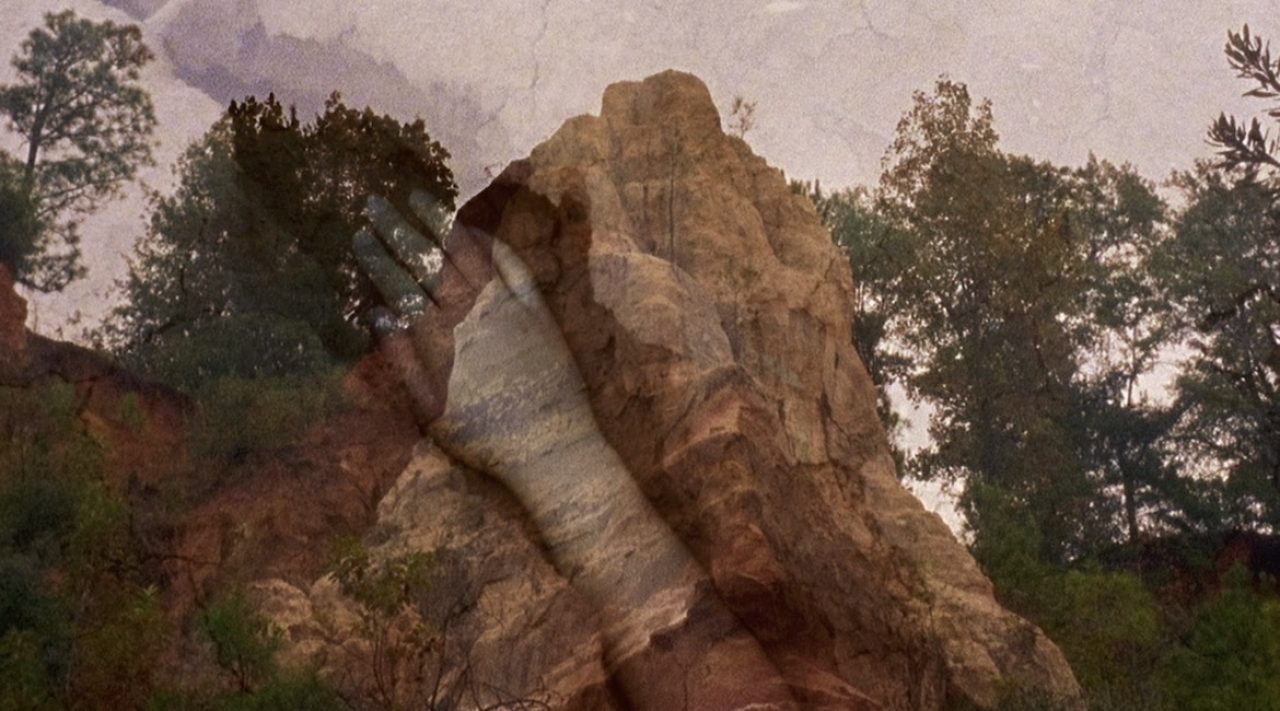
Join multimedia artist Elizabeth M. Webb for a talk and film screening; both events are free and open to the public, no registration is required. Masks and proof of vaccination are mandatory. Webb is an artist and filmmaker originally from Charlottesville, VA. Her work is invested in issues surrounding race and identity, often using the lens of her own family history of migration and racial passing to explore larger, systemic constructs. She has screened and exhibited in the US, United Kingdom, Canada, Japan, Ecuador, Singapore, Switzerland, Mexico, Spain, Austria, Norway and Germany and was a recipient of the inaugural Allan Sekula Social Documentary Award in 2014.
[more] -
Event
Critical Image Forum Dialogue Series: Sandra Boss
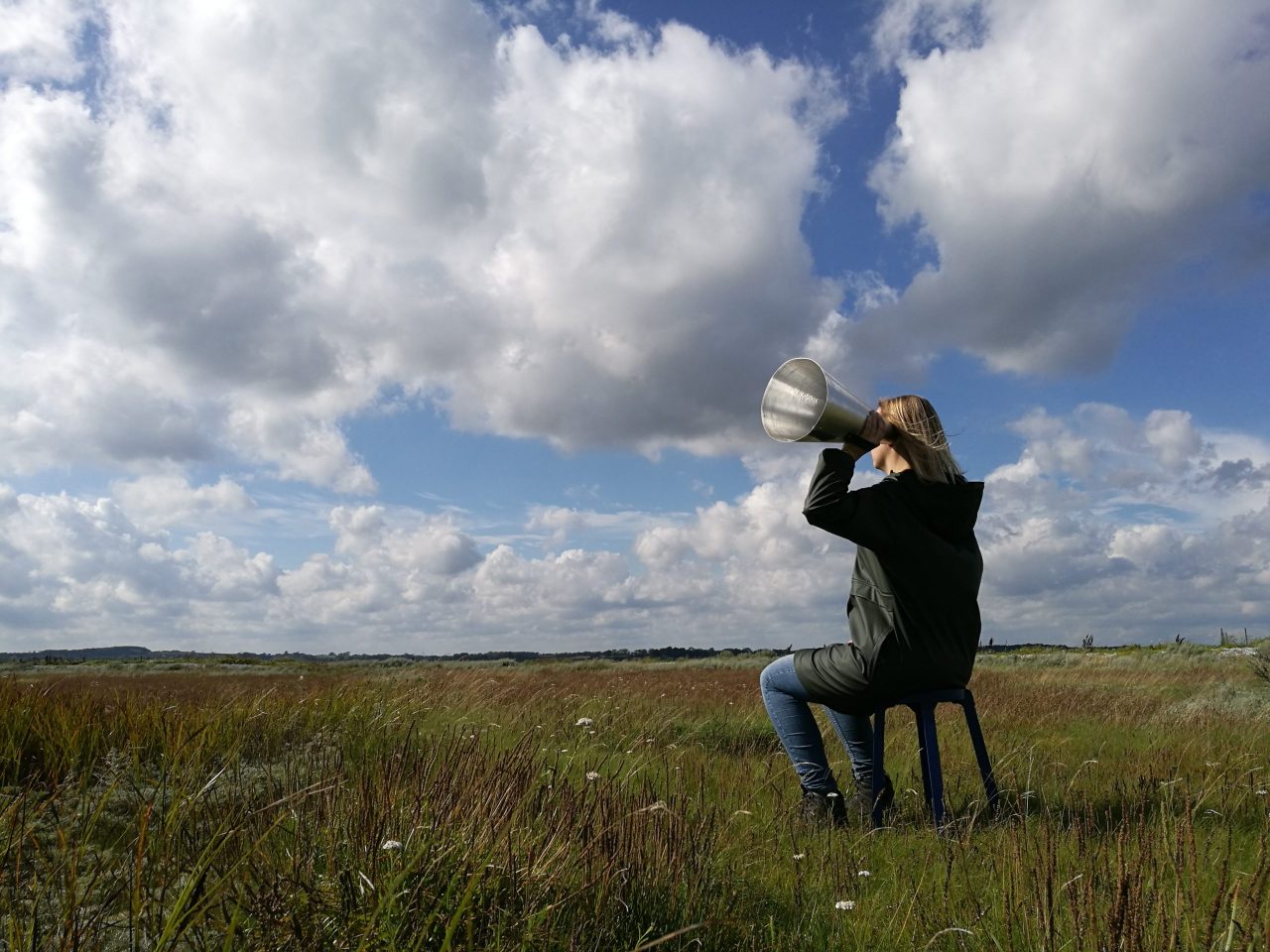
For this episode of the Critical Image Forum Dialogue Series, Tobias Ewé talks with Danish sound artist Sandra Boss about her practice-based research into mid-century German hearing machines, conceptions of hearing and how these shape the listening subject. The discussion takes its outset in Boss's dissertation, Tuning the Ear: Exploring Conditions and Conceptions of Hearing, which is much more than a collection of textual chapters, but a sound art object in and of itself.
[more] -
News
28 Apr 2021
Peter Wall Roundtable: Curating Critical Pedagogies
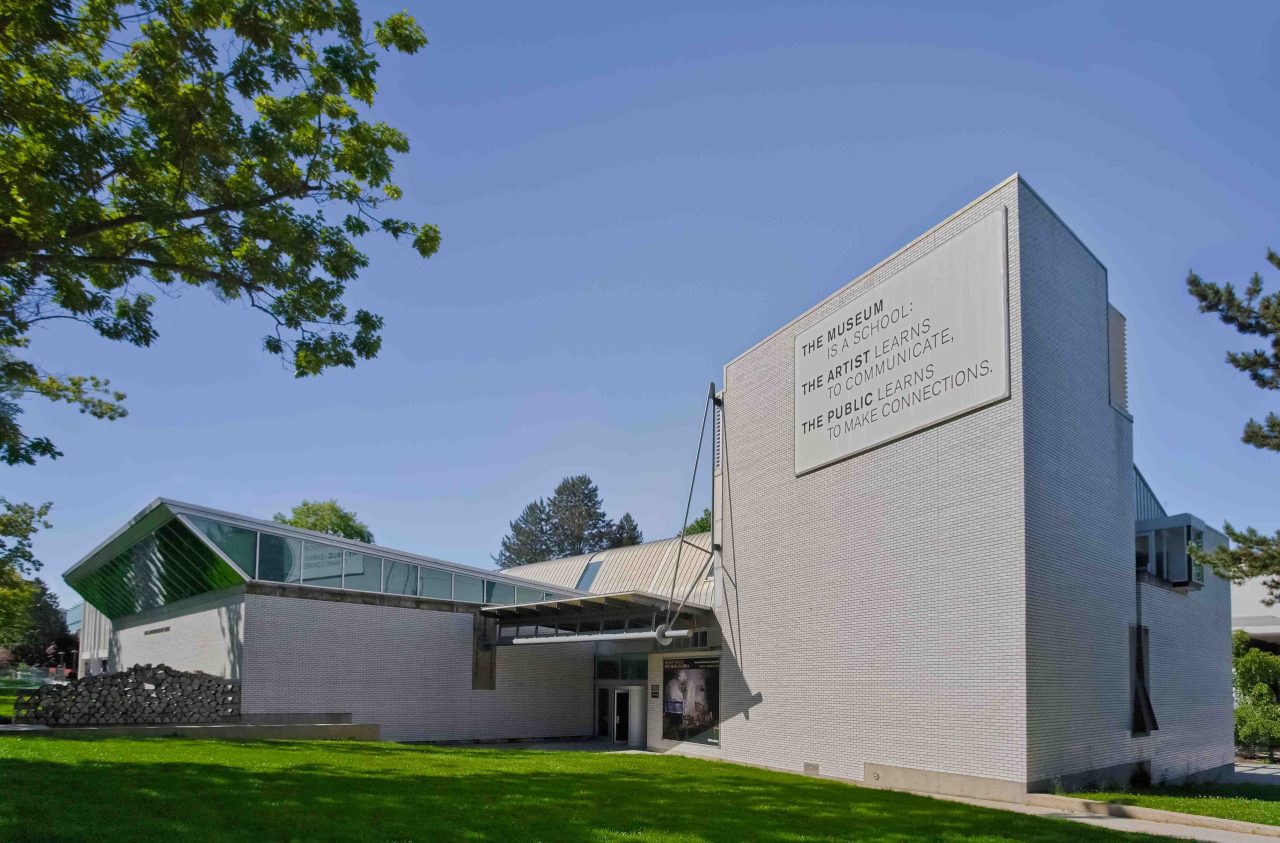
In May 2018, the Belkin received a Peter Wall Institute Roundtable Award for to explore Curating Critical Pedagogies, an ongoing research project devoted to critical practices in contemporary art and curating. The roundtable brought participants together for a five-day closed workshop as well as studio visits and conversations with Vancouver-based artists, curators, academics and critics. This was not a public event but an opportunity to come together to work through inquiries surrounding public engagement in art and exhibitions.
[more] -
Event
Critical Image Forum Dialogue Series: UAAC Global Photography

As part of the University Art Association of Canada's online conference, panel chairs Heather Diack (University of Miami) and Terri Weissman (University of Illinois at Urbana Champaign) brought together art historians and artists committed to deepening the discourse of photography studies and expanding its points of reference in Canada Global Photography: Critical Histories.
[more] -
Event
Critical Image Forum Dialogue Series: Farah Nosh
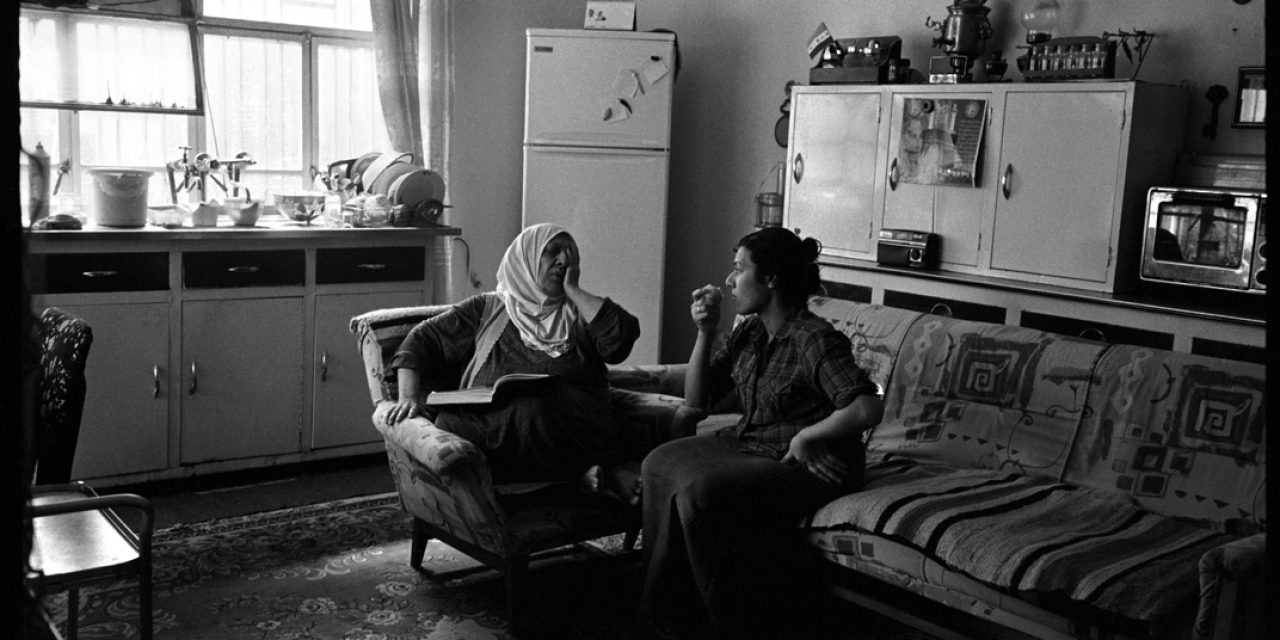
From her earliest work in conflict zones to her most recent project documenting fluent speakers of the Haida language in Haida Gwaii, Farah Nosh is known for her intimate, empathic approach to photojournalism and photographic portraiture. In this wide-ranging conversation initiated by UBC journalism MA student Steven Zhu, Nosh discusses her formative experiences with photography as a Geography student at UBC, and subsequently learning photojournalism on assignment in Iraq during the Saddam Hussein era.
[more] -
Event
Critical Image Forum Dialogue Series: Robert Del Tredici
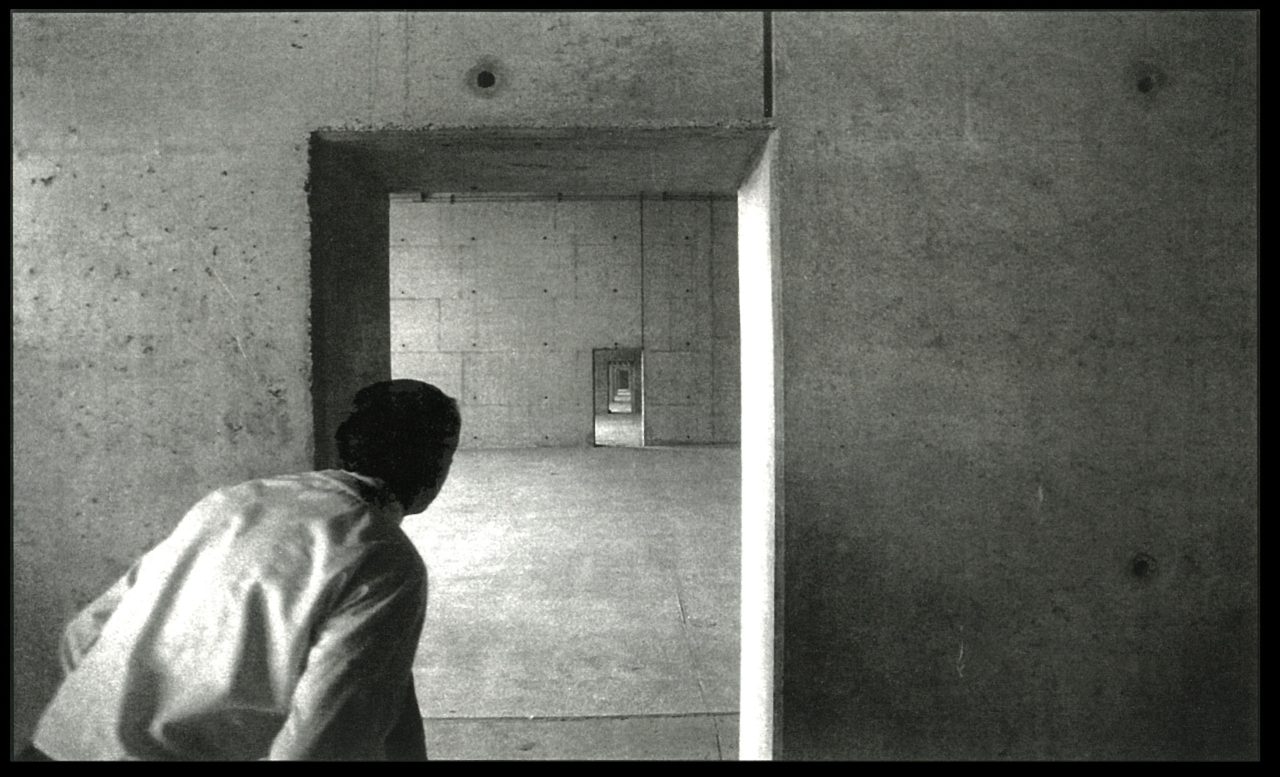
In this episode, through a far-reaching discussion of his illustration and photographic practice, and in dialogue with UBC professor emeritus John O’Brian, Robert Del Tredici touches on political, ethical and philosophical aspects of nuclear technologies and deployments. Through photographic projects from Three Mile Island, Hiroshima, Kazakhstan, Dene Territory in the Canadian Arctic and many other places and sites, Del Tredici’s presentation frames the enormity and devastation of the global nuclear industrial complex, helping to counter its forces of abstraction.
[more] -
Event
Critical Image Forum Dialogue Series: Paul Weinberg
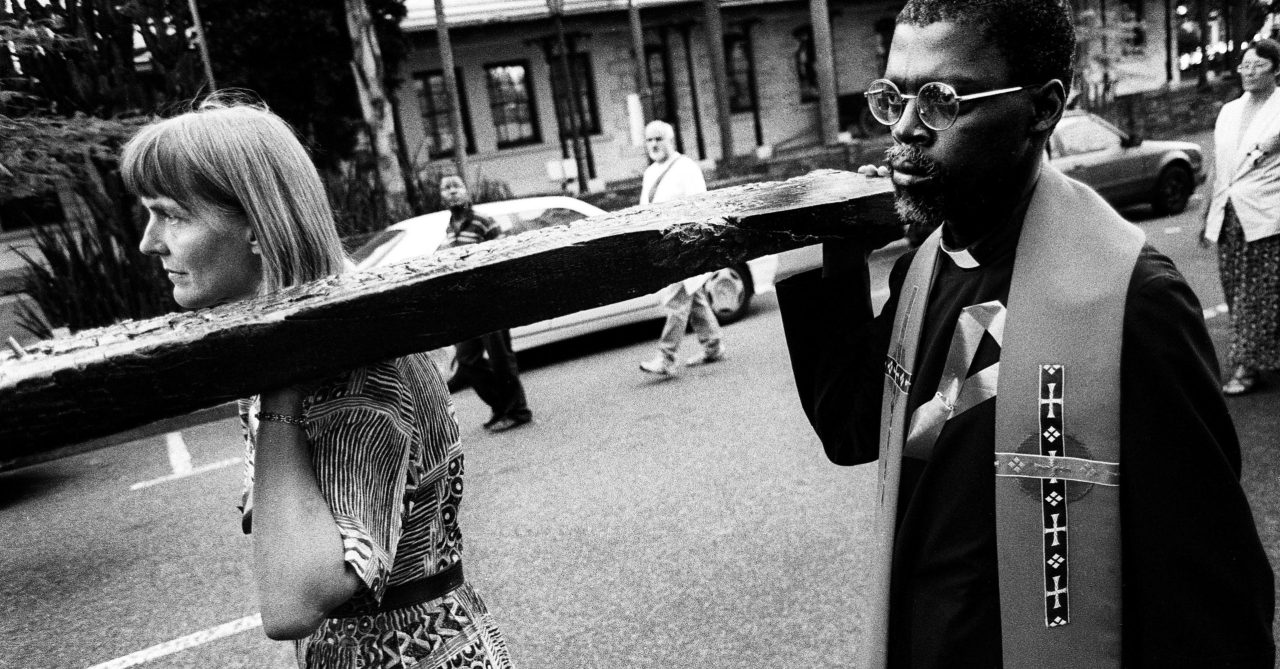
For this second episode of the Critical Image Forum Dialogue Series, Daniela Perez Montelongo is in conversation with South African photographer Paul Weinberg where they discuss key issues pertaining to the role of photography in South Africa during the Apartheid and post-Apartheid eras.
[more] -
Event
Critical Image Forum Dialogue Series: Marianne Nicolson
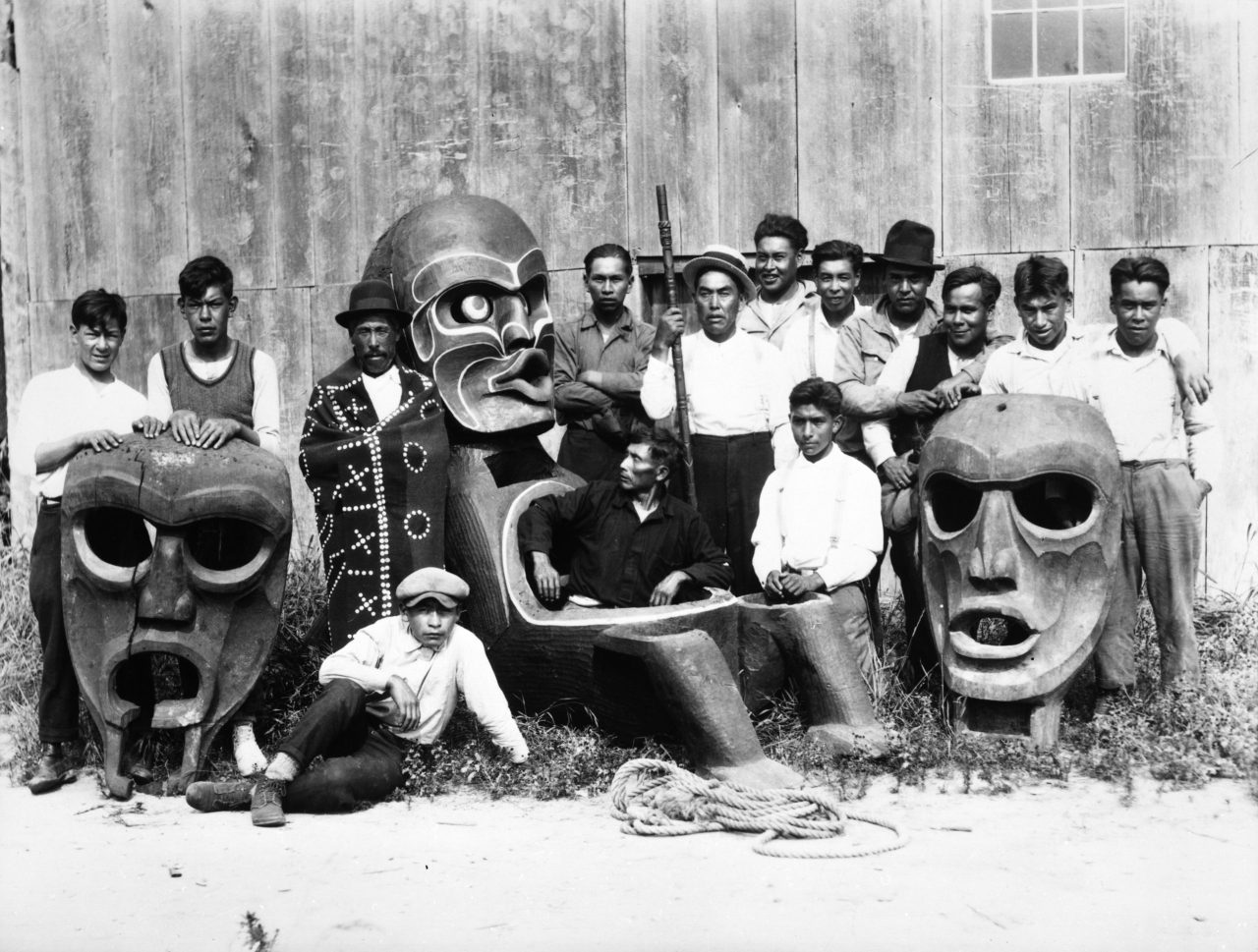
As part of Critical Image Forum's Dialogue Series, this online conversation with Althea Thauberger, Musgamakw Dzawada’enuxw artist and activist Marianne Nicolson helps us understand how particular photographic acts, although initiated by Canadian colonial photographers, were used, by those depicted, as opportunities for assertions of political, cultural and territorial sovereignty during the potlatch ban in the early twentieth century.
[more] -
Exhibition
11 January 2019 – 7 April 2019
Hexsa’a̱m: To Be Here Always
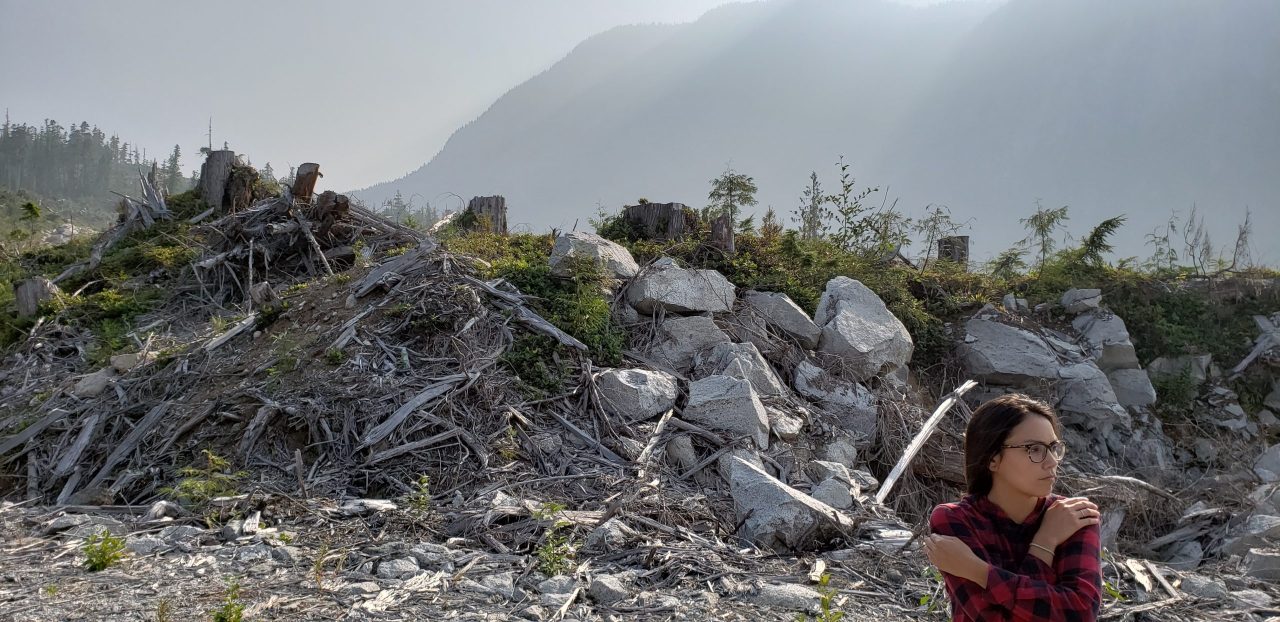
Working together at Kingcome Inlet in Summer 2018, a group of artists used film, video, social media, weaving, animation, drawing, language and song to address the urgent threats to the land and water. A manifestation of the relationships formed between the participants over this past year, Hexsa’a̱m: To Be Here Always is based on sharing knowledge and respectful collaboration. Simultaneously research, material, media, testimony and ceremony, the exhibit challenges the western concept that the power of art and culture are limited to the symbolic or metaphoric, and that the practices of First Peoples are simply part of a past heritage. As Marianne Nicolson states, “We must not seek to erase the influence of globalizing Western culture, but master its forces selectively, as part of a wider Canadian and global community, for the health of the land and the cultures it supports. The embodied practice of ceremonial knowledge relates to artistic experience – not in the aesthetic sense, but in the performative: through gestures that consolidate and enhance knowledge for positive change.” Hexsa’a̱m: To Be Here Always positions the gallery as an active location for this performance, drawing together many faculties and disciplines of the university in generative exchange.
[more] -
Event
Critical Image Forum Dialogue Series: Luis Jacob
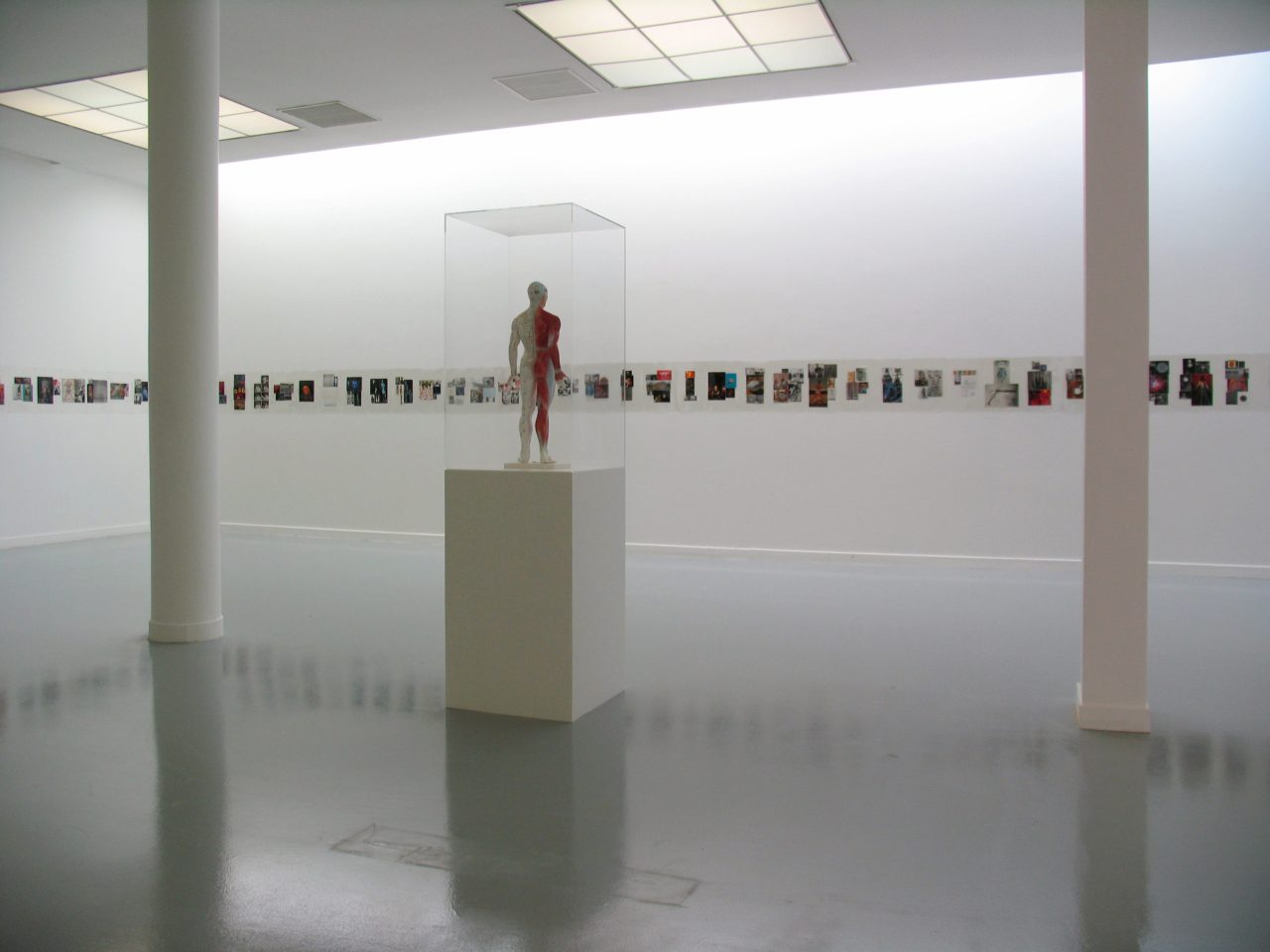
In this expansive consideration of his use of photographic archives, Luis Jacob describes the process of "aesthetic mobilization" that reveals the mediating - and mediated - character of human experience. With in-depth reference to two major works - his Album series (ongoing since 2000) and the recent project, The View From Here (2019) - he describes art’s capacity to arrest habitual trajectories of meaning-making, and to open spaces for new thoughts to become thinkable.
[more] -
Event
Wednesday 8 Feb 2023 at 5:30 pm
Critical Image Forum: A Conversation with Heather Igloliorte and Taqralik Partridge
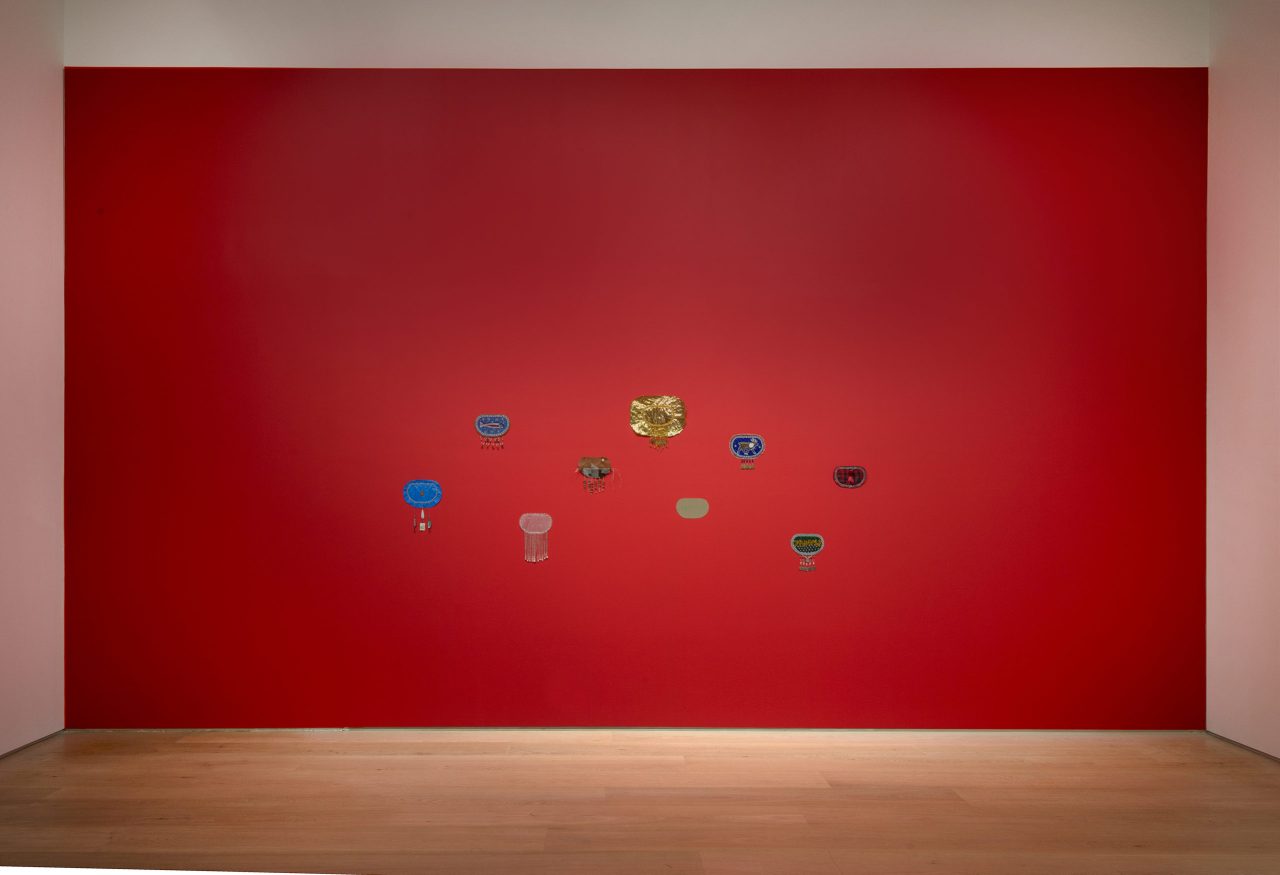
Please join us for a dialogue between Heather Igloliorte and Taqralik Partridge. The speakers will discuss their previous collaborations as well as broader issues in curating and producing contemporary Inuit Art in institutional and community contexts.
[more] -
Event
Wednesday, 4 Oct 2023 at 5:30 pm
Critical Image Forum: Lecture with Shawn Michelle Smith
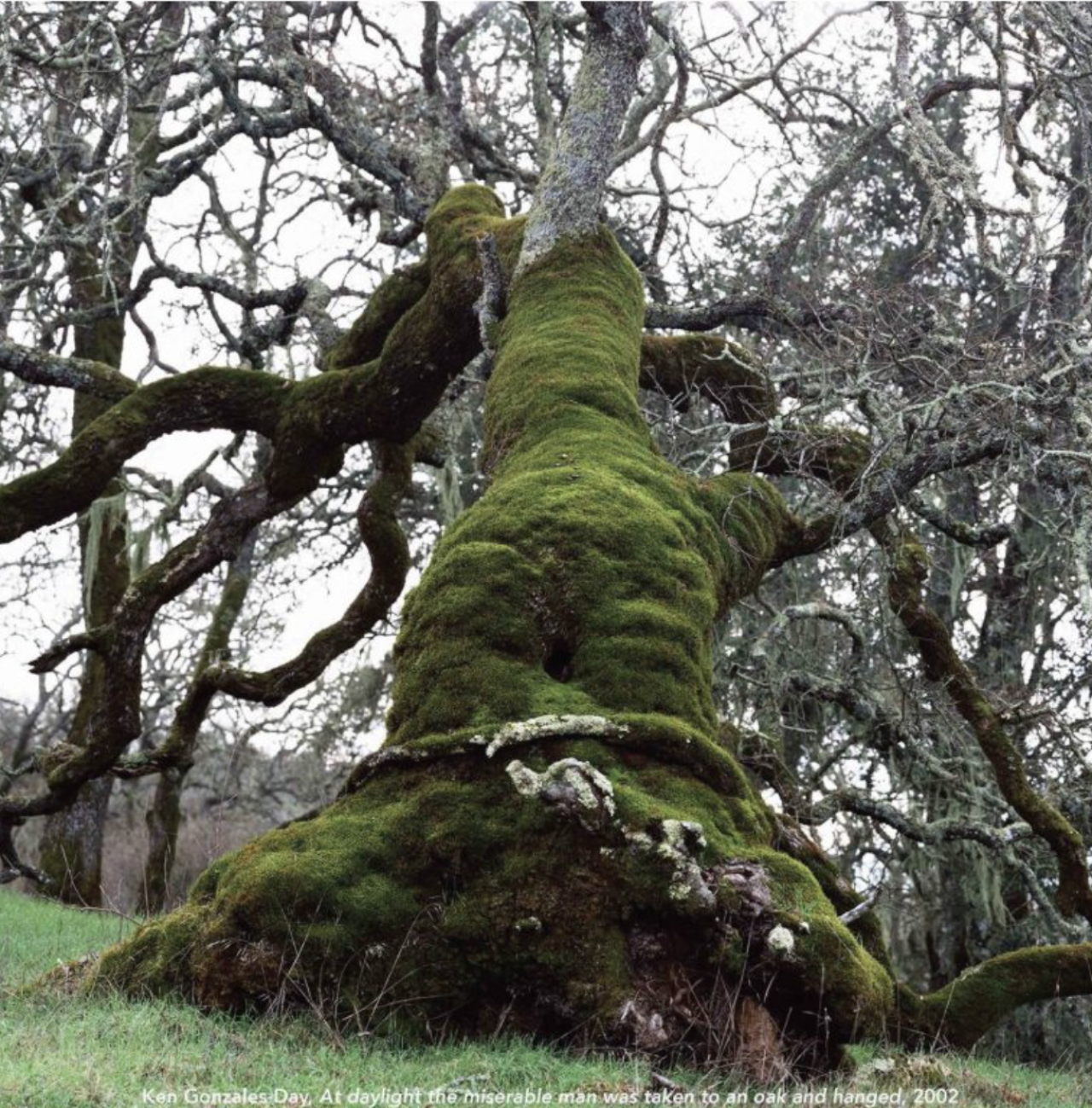
Join Shawn Michelle Smith for her talk Witness Trees: Ken Gonzales-Day re-surveys the US West, which proposes that Gonzales-Day's photographic series Searching for California Hang Trees brings into view the intertwined ecosystems of racialized human violence.
[more] -
Event
THURSDAY, 7 DEC 2023 AT 6 PM
Critical Image Forum: A Conversation with Hannah Darabi and Kelly McCormick at The Polygon
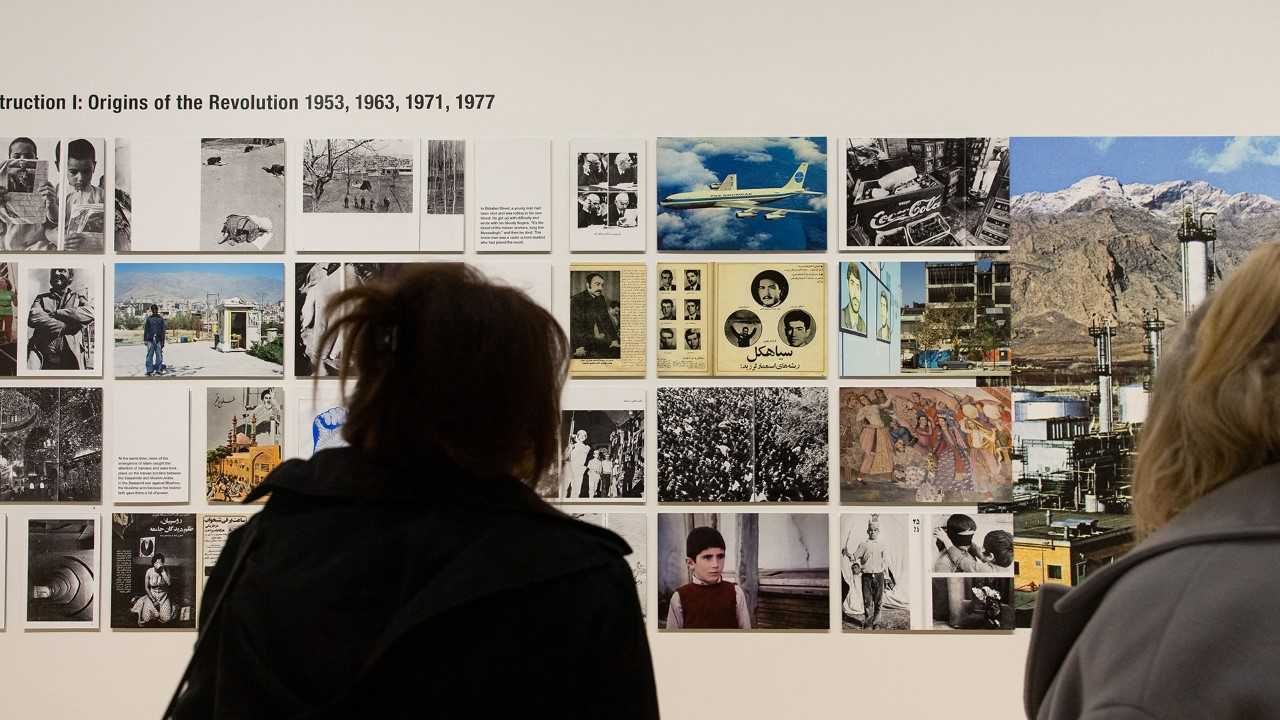
This conversation with From Slander's Brand exhibition artist Hannah Darabi and historian Kelly McCormick explores Darabi's critical project on the photo books published during the early years of the Iranian Revolution of 1979 recapturing the potential that revolutionaries and governments saw in photographs. Through Darabi's work we uncover the possibilities and limits of photographs as they are changed, manipulated, and turned into icons.
[more] -
Event
Wednesday, 22 Nov 2023 at 12:30 PM
Critical Image Forum: Lecture with Nancy Adajania
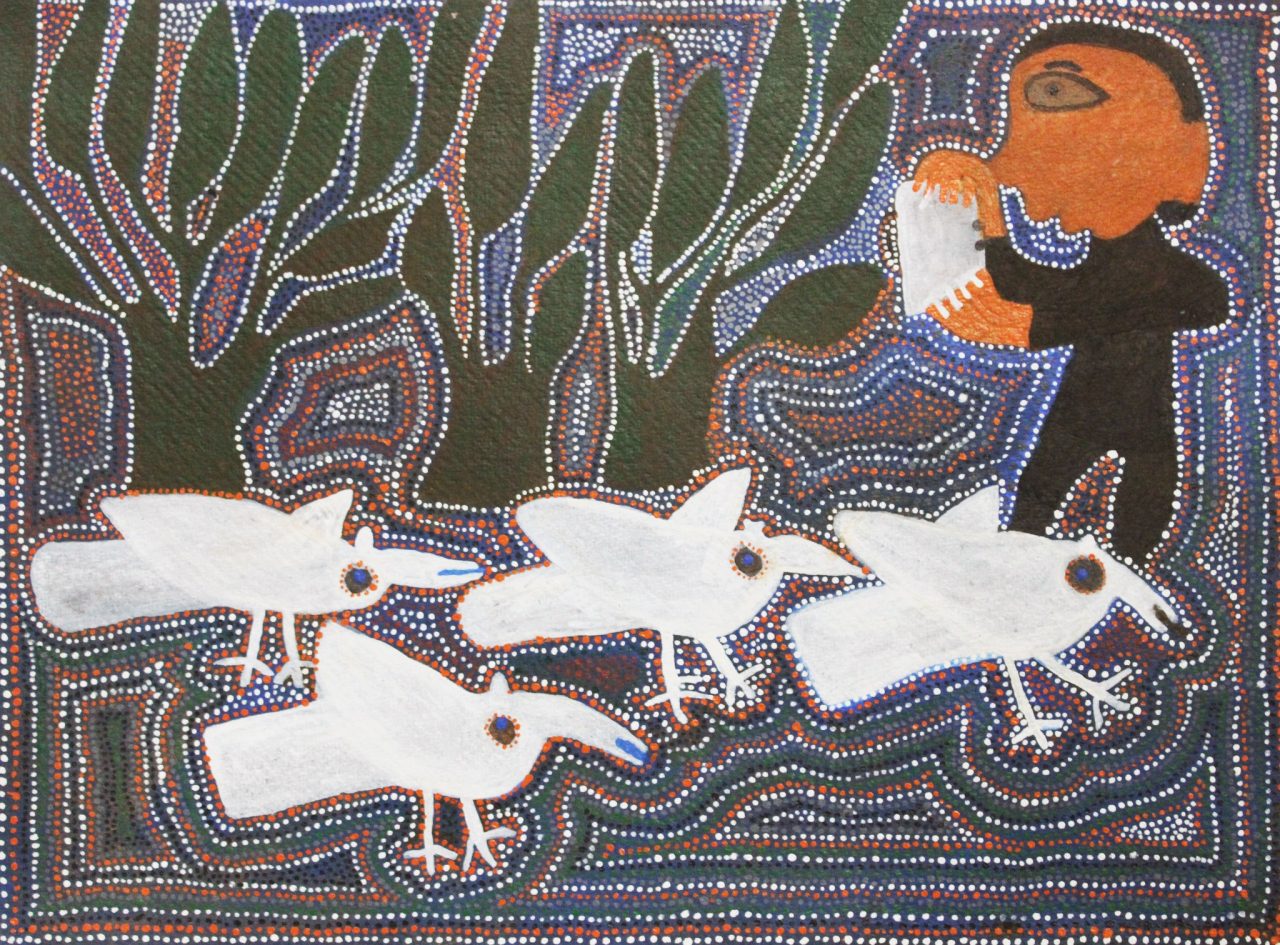
Join us for a lecture Nothing Primordial About It: The Political Ecology of Adivasi Art by Mumbai-based cultural theorist and curator Nancy Adajania. This event is presented by the Critical Image Forum and the Department of Art History, Visual Art and Theory, and the Surrey Art Gallery. Critical Image Forum is a collaboration between the Belkin and the Department of Art History, Visual Art and Theory at UBC.
All are welcome.
[more] -
Event
THURSDAY, 17 OCT 2024 AT 6:30 PM
Critical Image Forum: Book Launch with Siobhan Angus
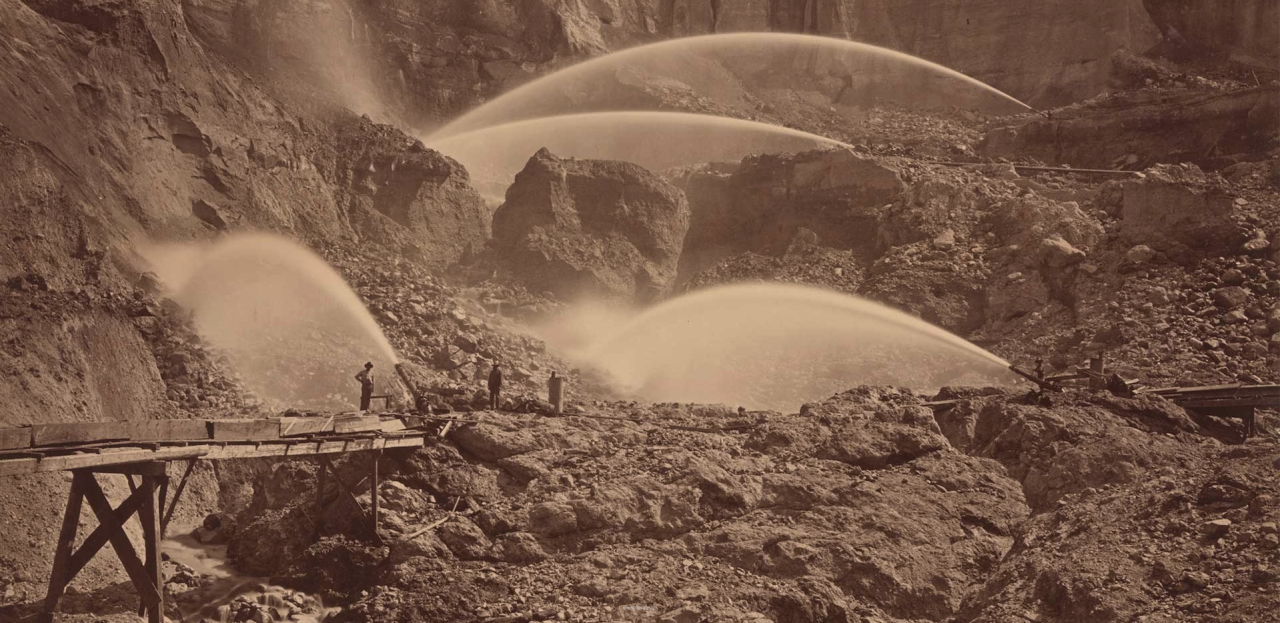
Camera Geologica: An Elemental History of Photography is a groundbreaking study of photography by art historian, curator, and organiser Siobhan Angus. Joining her is Kelly McCormick, whose recent research into photography’s relationship with exposing industrial pollution events in Japan, will frame a critical discussion on what we see – or what is obscured – when we look at photographs.
[more]
